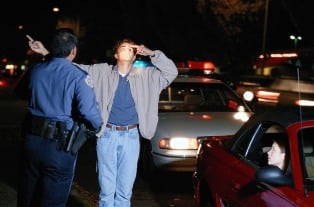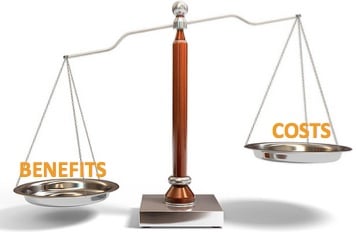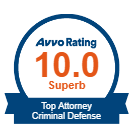How to Resolve Old Arrest Warrants Without Risking Deportation – Florida Defense Attorney Grant Schwarz, Esq. Explains
Living in Fear of an Old Warrant? You’re Not Alone.
If you have an old arrest warrant in Florida and are afraid to go to court because of your immigration status, you are not the only one. Many people live in silence for years, sometimes decades afraid that resolving a criminal case will lead to ICE involvement, detention, or deportation.
As a Florida criminal defense attorney, I’ve helped people clear bench warrants and arrest warrants from 10, 20, even 35 years ago often without them ever having to step foot in a courtroom. You can resolve your case safely. The key is understanding the process, knowing your rights, and having an experienced lawyer on your side.
Why Old Warrants Are So Dangerous for Immigrants
If you were arrested years ago and never returned to court, or if you missed a court date, a warrant for your arrest was likely issued. That warrant stays active until it’s resolved even decades later.
Many immigrants (documented or undocumented) fear that if they try to clear the warrant, they’ll be reported to immigration authorities. But letting a warrant sit unresolved only increases the risk of:
Being arrested during a traffic stop or background check
Losing immigration opportunities due to a pending charge
Triggering ICE involvement during an unrelated interaction
Case Highlight: 1990 Warrant Resolved After 35 Years
Recently, we helped a woman who had been living in fear since 1990, when a bench warrant was issued in her name. For 35 years, she avoided contact with law enforcement, never felt safe, and was always looking over her shoulder.
We resolved the warrant, addressed the underlying charge, and gave her peace of mind without her being deported or detained. Every case is different, but with careful legal planning, you don’t have to stay stuck in the shadows.
What You Can Do Without Risking Everything?
You may be able to:
Resolve your case without appearing in court
Have a lawyer quash the warrant on your behalf
Work with both criminal and immigration attorneys to protect your status
Clear your record and finally move forward with your life
If your case is in Florida, I can help you review court records, analyze risk, and create a legal strategy that protects you. The most dangerous thing is doing nothing.
Frequently Asked Questions
Can I clear an old arrest warrant in Florida without getting deported?
Yes, depending on your case, a criminal defense attorney can often file a motion to quash the warrant or resolve the case without triggering immigration enforcement. Each situation is unique, so you should consult both a criminal and immigration attorney before taking any action.
What happens if I do nothing about the warrant?
The warrant will remain active, which means you could be arrested at any time, during a traffic stop, background check, or even a routine green card renewal. Waiting only increases your legal risk.
Will ICE know if I go to court to fix the warrant?
Not automatically. Florida courts do not generally notify ICE of warrant resolutions. But if your name is already flagged in certain databases, the risk is real. That’s why legal strategy and attorney representation are critical.
Can a lawyer go to court for me?
Often, yes. In many misdemeanor or older non-violent cases, your attorney can appear on your behalf and work to lift the warrant or negotiate a favorable resolution.
Don’t Let Fear Control Your Future
If you’re living in fear because of an old Florida arrest warrant, I can help. You don’t have to hide forever. And you don’t have to go through this alone.
Call me today for a confidential consultation or fill out the contact form below. I’ll explain your options clearly and help you take the first step toward freedom.
Broward Shelter in Place Order and COVID-19
COVID-19 is a respiratory illness caused by a virus that is spreading quickly throughout the globe and even in Broward County, Florida. On March 26, 2020 Broward County issued a Shelter In Place Order which officials have named “Safer at Home Policy”. Essentially this means that all non essential workers must remain in their homes with few exceptions. County officials permit travel outside of your home to conduct essential activities to sustain life. Broward County permits travel for grocery shopping, work (if essential business), medical visits, prescription pickups and outdoor exercise so long as you observe social distancing requirements. All people must adhere to measures advised by the CDC for social distancing at all other times as well.
Can I be arrested for being outside during the Shelter In Place Order?
The Sheriff of Broward County, Gregory Tony has made public statements that folks found outside for non essential activities will be given a warning. Depending on how often these warnings are to be given, local police have indicated that arrests can and will be made for those violating shelter in place orders. These orders are being given to protect the population from the spread of this dangerous virus. We strongly recommend that everyone follow the shelter in place orders and all recommendations from the federal, state and local governments for social distancing.
What to do if I am arrested during COVID-19 crisis?
If you are arrested for any crime during this crisis, the procedure is relatively similar. Police will likely do what they can to avoid having to take you to jail for most misdemeanor offenses. Felony cases, as always, require a custodial arrest and a reasonable bond. There is little to no information being released regarding COVID-19 in the Broward County jail system at this time. As with other states, I am sure that COVID-19 has already been introduced into the jails and we will start getting reports about the number of cases soon. If you have been arrested and bonded out from jail in the past 2 weeks, it is recommended that you self quarantine for at least 15 days to prevent the spread of the virus to family, roommates, friends or anyone else who you could come in contact with.
As always, contact an attorney if you have been arrested for any crime in Broward County.
What will happen with my pending court case during COVID-19 crisis?
At the present, all court hearings are cancelled and the courthouse is closed to public visitors. All of my pending cases in Broward County have been cancelled and given future dates. This means that nothing will be happening with your case apart from ordinary discovery exchanges and emails with prosecutors regarding plea offers and other standard communications. It is unclear when the courts will be reopened and when normal activities will resume. Until that time, it is recommended that you follow the Shelter in Place Order entered on March 26, 2020 and keep yourself isolated from others. The longer you are home and safe, the less risk of being stopped by police and running into additional problems.
The office of Grant Schwarz, Criminal Defense Attorney is open and taking calls every day. We have invested time and resources to remain open and operational during this crisis and to help our clients and answer questions from new potential clients every day. Please call us with any questions regarding your pending case or a new arrest during the COVID-19 crisis. We are here to help you.
Coronavirus and Restraining Orders
During this unsettling time of global crisis, many of us are being ordered to remain home. My first thought about being urged to stay home sounded like it could be a chance to relax, clean up the house and spend time with my family. After only 72 hours home with my kids, spouse, household responsibilities, my wife’s career demands and my career demands for working for my clients, my thoughts drastically changed. My kids are running around in need of constant supervision, my house needs constant cleaning, meals need to be prepared, laundry needs to be done, and grocery shopping must get done through crowds of potentially infected people. We all feel like we are on top of each other and patience is in short supply.
The impact of the Novel Coronavirus COVID-19 has hit us all. Many folks are experiencing anxiety, confusion and fear. The situation I am describing is happening in millions of households across the country. In addition to all the responsibilities we all face, many folks are experiencing devastating financial impact and food insecurity. When we put everything together we are left with a very dangerous recipe for domestic violence.
Regardless of what you have heard, Domestic Violence Courts are open and functioning. Domestic Violence Court is an integral part of our justice system and will continue to function 7 days a week as it always has. Domestic violence court operates on weekends and during holidays 365 days a year to help people experiencing emergencies and need protection. In Broward County, victims of domestic violence are permitted to file petitions for injunctions against violence, stalking and sexual violence just as always.
Simply because you are locked up in a house/apartment/condo/RV, you do not need to suffer additionally from an abusive person. Regardless of what an abuser may say, you have rights and you can take action to protect yourself. You can still file for an injunction.
Filing for an Injunction (restraining order) can help you if:
- You want to stop someone from abusing you
- You want to stop someone from contacting you
- You want to stop someone from doing something
While it may seem impossible at the moment to keep an abusive person away from you, an injunction will order your abuser be at least 500 feet away from you at all times. This will remove the abuser from your home and protect you from future harm.
Types of Restraining Orders
There are several types of Injunctions and Restraining orders that can be filed. Each deals with a different type of conduct that the petitioner wants to stop. The most common injunctions are: Dating, Domestic, Repeat, Sexual and Stalking.
Dating Violence
Violence or stalking that has occurred, or that the Petitioner has reasonable cause to believe they are in imminent danger of becoming a victim of, between individuals who (1) have been in a dating relationship within the past 6 months (2) have had an expectation of affection or sexual involvement and (3) have been involved over time and on a continuous basis, excluding individuals who have engaged in ordinary fraternization in a business or social context.
Domestic Violence
Violence or stalking that has occurred, or that the Petitioner has reasonable cause to believe they are in imminent danger of becoming the victim of, between individuals who are spouses, former spouses, or persons related by blood or marriage who are residing or have resided together as a family, or individuals who are residing together or have resided together as if family, or individuals who have a child in common.
Repeat Violence
Two acts of Violence or stalking on two separate occasions, one of which must have been within the past 6 months committed by a person against another person. These types of Injunctions are usually appropriate for neighbor-against-neighbor, coworker-against-coworker, or other types of relationships that are of a non-domestic or non-dating nature.
Stalking Violence
Stalking Violence means someone is purposely following or harassing you repeatedly over a period of time for no legitimate purpose, causing you emotional stress. If in doing so, he/she threatens your life or threatens to harm you, with the intent to cause you reasonable fear for your safety, then the act becomes aggravated.
Sexual Violence
Any one of the following criteria must be met: (1) You must have reported the incident to law enforcement and be cooperating in any criminal proceedings or (2) The Respondent must have been sentenced to prison and the term expired or is due to expire within 90 days, and any incident of the following: (1) sexual battery (2) a lewd or lascivious act, committed upon or in the presence of a person younger than 16 (3) luring or enticing a child (4) sexual performance by a child or (5) any other forcible felony wherein a sexual act is committed or attempted.
Contact a Broward County Restraining Order Lawyer
If you are facing any issue wherever you are involving an abusive person, consider speaking with an experienced attorney to discuss your options in filing injunction or restraining order. It is important that you contact the office of Attorney Grant Schwarz for a free consultation. Your options are still here to help during the COVID-19 Crisis.
Broward DUI on NYE

Broward DUI Attorney Grant Schwarz
Nothing ruins an evening, especially New Years Eve more than being arrested on charges of DUI.
Getting arrested for DUI is definitely something everyone wants to avoid in their lifetime. Florida has some of the strictest penalties for DUI’s around. As we know there is a multi-stage process that begins when you are arrested. The first is the arrest process, second is the administrative suspension process, and the third is the defense of your criminal charge in court.
But with this being the end of the 2015 holiday season and with New Years Eve upon us, we are still in a very highly traveled time of year and police are on highest alert for impaired drivers. During this time of year excessive alcohol consumption is very common and very often this leads to arrests for a multitude of charges, not just DUI. In fact, many first time offenders get caught during the holiday season due to the over vigilant police forces.

The odds of getting into a car accident are even higher during this time of year simply because there are more cars on the road visiting family and friends for the holiday season. But when the roads are full of people who have maybe had one too many, the odds of a crash are even higher. During the holidays, the number of travelers on our nation’s roads spikes. Unfortunately, increased alcohol consumption and increased cars on the road directly produce more fatalities resulting from car crashes alcohol-impaired drivers. This result is so predictable that police departments are likely to make more pre-textual stops without any real reasonable suspicion more often during this time of year than any other.
So what do you do to avoid becoming a Florida DUI statistic during the holiday season this year?

Avoid Drinking then Driving
Obviously the best way to avoid a DUI is to avoid drinking alcohol or consuming controlled substances whenever you think you may be driving soon thereafter. If there is nothing in your system, the police will have no evidence. Keep in mind that all a police officer needs to ask you to provide a breath sample is an odor of alcohol and other very vague signs of impairment. While you may be able to beat a DUI charge, you can rarely beat the ride through the court system.
If You Drink, Watch Your Intake
The legal alcohol limit in Florida is 0.08. This means that if your breath or blood alcohol content is above that number, you will be arrested and charged. Make sure you never drink on an empty stomach and keep close track on how many drinks you’ve had over whatever period of time you’ve been drinking. Keep in mind that everyone’s body is different and alcohol can affect your normal faculties more or less so than others. Know your limits. DUI doesn’t mean Drunk, it means Impaired.
Drive Extra Safely
This should go without saying anyway. While operating a vehicle on the road, you should always be driving safely and observing all traffic laws. Take extra care to stay within speed limits and obey all traffic control devices such as lights and stop signs. Stay off of your cell phone and do not text while driving. Driving while distracted will likely result in you being pulled over.
Don’t Try to Sleep it Off
DUI laws in Florida require the government prove that you were in actual physical control of the vehicle. Courts have found that if you are sleeping in the vehicle and you are in possession of the keys, you can still be charged with DUI. Crazy right?
Be Nice
Nobody likes to be stopped by police, but if you do happen to get stopped by a police officer while driving, go out of your way to be as kind and cooperative as possible. Police officers on New Years Eve are expecting the worst, so surprise them by not giving them a hard time or asking too many questions or being overly talkative. The officer wants the encounter to be over too. Don’t give him/her a reason to remember you. Take your ticket (if one is given) and drive away, call a lawyer and deal with it later.
To learn more about the DUI process please click here to read our site’s DUI information section.
If you know someone who has been arrested the best thing to do if is to contact a Fort Lauderdale Criminal Defense Attorney to look into this issue for you.
Disorderly Conduct Arrests in Fort Lauderdale
Disorderly Conduct is one of those misdemeanor charges I see very frequently. However, it is very rare that I have had a client take a plea to or be found guilty of such a crime. The reason is that this particular statute is written in such a vague manner that it is very difficult for the state attorneys office to obtain a conviction.
In order to be convicted of Disorderly Conduct the officer must witness a person behaving in such a manner so as to corrupt the public morals, outrage the sense of public decency or affect the peace and quiet of persons who may witness them or be in the midst of a brawl or physical fight with another person in public. I have not encountered the “brawling part” of the statute as often as I have seen police officers make arrests for other reasons. The more common situation that I have encountered when defending a Disorderly Conduct charge is when a person has been arrested by law enforcement simply because the police officers making the arrest do not fully understand the law and use Disorderly Conduct as a “catch all” statue to make an arrest when no other crime seems to fit.
The problem with this behavior by police is that people will be arrested for completely lawful behavior. I recently had a client arrested for Disorderly Conduct and Resisting Arrest Without Violence in Fort Lauderdale after asking a police officer a few questions while the officer was “tending” to an injured person on the street. In a situation like that, I would have recommended that my client steer clear of the police officers entirely and leave the police alone to their business. However, I was not there at the time of the arrest to give such advice. Whenever an officer or officers appear to be in the middle of an investigation, arresting someone or are even sitting around doing nothing, the best thing you can do is LEAVE THEM ALONE. Most likely, nothing good will come to you by approaching a police officer, unless you are in need of protection or have just been a victim of crime. Even then, it is good practice to be wary of what information you provide police officers.
Sure, the law permits you to ask a police officer where they are taking someone who is being arrested, or even to ask why the person is being arrested. However, most times when people approach a busy officer, that person will end up getting arrested for “obstruction”.
Cases involving Disorderly Conduct or Breaches of the Peace sometimes involve some type of physical component like fighting. Other times, arrests for Disorderly Conduct or Breach of the Peace involve only verbal incidents. What does this mean? For example: What would happen if you started chanting “F@#k the Police!” when you see a group of officers standing around? First, the officer will likely order you to stop and leave the area. But what if you refuse? You will likely be arrested. But it does not end there. Consider the case of State v. Saunders 339 So.2d 641 in a Florida Supreme Court decision, the court dealt with the issue of speech as the basis for a Disorderly Conduct charge. The court decided that no words besides “fighting words” would be used as the basis for a Disorderly Conduct charge:
“In light of these circumstances, we now limit the application of Section 877.03 so that it will hereafter only apply either to words which by their very utterance inflict injury or tend to incite an immediate breach of the peace or to words known to be false, reporting some physical harm in circumstances where such a report creates a clear and present danger of bodily harm to others. We construe the statue so that no words except fighting words or words like shouting of ‘fire’ in a crowded theater fall within this proscription, in order to avoid the constitutional problem of over breadth and the danger that a citizen will be punished as a criminal for exercising his right of free speech.”
Back to the example: If you shout F the police, the Court would have to consider what else you did along with the shouting. Disorderly conduct charges will likely be dismissed or found not guilty wherever the defendant creates an annoyance, uses profanity, causes a crowd to gather, or displays a general bad attitude. Verbal conduct alone is rarely found to be the only basis for a conviction of Disorderly Conduct. If it’s just you on the street and nobody seems to care what you’re doing and its only the police that get annoyed by you shouting “F You” to them, then there’s very little likelihood that you’ll get charged and convicted of Disorderly Conduct.
If you know someone who has been arrested and you want to know what has happened to them, or what may happen next, there are many places you can check for information. One good place to check would be at the police station in a calm manner to speak with either the arresting officer, or their supervisor to find out what the arrest was for and what the next steps are in the process. The best thing to do if someone you know has been arrested is to contact a Fort Lauderdale Criminal Defense Attorney to look into this issue for you.
isorderly Conduct is one of those misdemeanor charges I see very frequently. However, it is very rare that I have had a client take a plea to or be found guilty of such a crime. The reason is that this particular statute is written in such a vague manner that it is very difficult for the state attorneys office to obtain a conviction.
In order to be convicted of Disorderly Conduct the officer must witness a person behaving in such a manner so as to corrupt the public morals, outrage the sense of public decency or affect the peace and quiet of persons who may witness them or be in the midst of a brawl or physical fight with another person in public. I have not encountered the “brawling part” of the statute as often as I have seen police officers make arrests for other reasons. The more common situation that I have encountered when defending a Disorderly Conduct charge is when a person has been arrested by law enforcement simply because the police officers making the arrest do not fully understand the law and use Disorderly Conduct as a “catch all” statue to make an arrest when no other crime seems to fit.
The problem with this behavior by police is that people will be arrested for completely lawful behavior. I recently had a client arrested for Disorderly Conduct and Resisting Arrest Without Violence in Fort Lauderdale after asking a police officer a few questions while the officer was “tending” to an injured person on the street. In a situation like that, I would have recommended that my client steer clear of the police officers entirely and leave the police alone to their business. However, I was not there at the time of the arrest to give such advice. Whenever an officer or officers appear to be in the middle of an investigation, arresting someone or are even sitting around doing nothing, the best thing you can do is LEAVE THEM ALONE. Most likely, nothing good will come to you by approaching a police officer, unless you are in need of protection or have just been a victim of crime. Even then, it is good practice to be wary of what information you provide police officers.
Sure, the law permits you to ask a police officer where they are taking someone who is being arrested, or even to ask why the person is being arrested. However, most times when people approach a busy officer, that person will end up getting arrested for “obstruction”.
Cases involving Disorderly Conduct or Breaches of the Peace sometimes involve some type of physical component like fighting. Other times, arrests for Disorderly Conduct or Breach of the Peace involve only verbal incidents. What does this mean? For example: What would happen if you started chanting “F@#k the Police!” when you see a group of officers standing around? First, the officer will likely order you to stop and leave the area. But what if you refuse? You will likely be arrested. But it does not end there. Consider the case of State v. Saunders 339 So.2d 641 in a Florida Supreme Court decision, the court dealt with the issue of speech as the basis for a Disorderly Conduct charge. The court decided that no words besides “fighting words” would be used as the basis for a Disorderly Conduct charge:
“In light of these circumstances, we now limit the application of Section 877.03 so that it will hereafter only apply either to words which by their very utterance inflict injury or tend to incite an immediate breach of the peace or to words known to be false, reporting some physical harm in circumstances where such a report creates a clear and present danger of bodily harm to others. We construe the statue so that no words except fighting words or words like shouting of ‘fire’ in a crowded theater fall within this proscription, in order to avoid the constitutional problem of over breadth and the danger that a citizen will be punished as a criminal for exercising his right of free speech.”
Back to the example: If you shout F the police, the Court would have to consider what else you did along with the shouting. Disorderly conduct charges will likely be dismissed or found not guilty wherever the defendant creates an annoyance, uses profanity, causes a crowd to gather, or displays a general bad attitude. Verbal conduct alone is rarely found to be the only basis for a conviction of Disorderly Conduct. If it’s just you on the street and nobody seems to care what you’re doing and its only the police that get annoyed by you shouting “F You” to them, then there’s very little likelihood that you’ll get charged and convicted of Disorderly Conduct.
If you know someone who has been arrested and you want to know what has happened to them, or what may happen next, there are many places you can check for information. One good place to check would be at the police station in a calm manner to speak with either the arresting officer, or their supervisor to find out what the arrest was for and what the next steps are in the process. The best thing to do if someone you know has been arrested is to contact a Fort Lauderdale Criminal Defense Attorney to look into this issue for you.
DUI Checkpoints on Thanksgiving
Fort Lauderdale DUI Defense Attorney Grant Schwarz Explains how checkpoints can stop your holiday fun in its tracks.
Concerts, festivals and holidays, especially holidays which involve a fair amount of drinking; like Thanksgiving and Christmas are among the most popular times the local police decide to set up DUI checkpoint stops throughout the South Florida Area. In my career I have handled dozens of cases involving DUI checkpoints. These arrests are very common in South Florida and it is important for you to know how to properly handle yourself if you are stopped at a DUI checkpoint in Broward County.
For those who don’t know what a DUI checkpoint is; a DUI checkpoint is also sometimes referred to as a Sobriety Point. There are three distinct phases in the DUI Checkpoint. The first is the “Funnel”. The funnel is a term used to describe the way officer’s use using traffic cones and other traffic control devices to narrow lanes of traffic down to one lane. Once a vehicle enters the funnel, cars are counted by the police officers monitoring the checkpoint. There will be a pre-determined method set up in the Operation Plan to select which vehicles will be stopped and interviewed by police. Depending on the flow of traffic, officers will select every other car to interview the driver if traffic is slow, or at bigger intervals if traffic has backed up. Once a vehicle has been selected, the officer will speak with the driver and ask some basic questions about where they are coming from or going, also will ask if the driver has consumed any alcohol that evening.
This is when the officer will make a determination whether the driver is potentially impaired by alcohol. This is the precise time that you need to take control of the situation and handle yourself properly. You should never try to drive away when the officer is trying to speak with you. Driving away could result in additional charges like Resisting an Officer or Fleeing/Eluding. Understand that DUI Checkpoints are a perfectly legal way for police officers to stop your car as long as they have followed the proper procedures in setting the checkpoint up. Understand that there is very little you can do while on scene with police officers to prevent being arrested, so do not make matters worse by trying to run away.
“Even a fish would not get caught if they kept their mouth shut”. This is something that I tell all of my clients. Do not answer questions the officer has not asked you, and do not volunteer information that has not been requested. Do not open your mouth needlessly because everything you say is potentially being recorded and will absolutely be used against you in court. The less you say, the better. Be polite and speak with a normal even tone and do not argue with the officer. You will not be able to talk your way out of an arrest. Arguing with an officer will almost always result in additional charges, or at the very least being labeled as “Belligerent” in the arrest report. Judges, prosecutors and juries do not look kindly upon the Belligerent arrestee.
If you or someone you know has been caught up in a DUI Checkpoint over the holiday weekend, please call the DUI Defense Attorneys at Attorney Grant Schwarz . Florida licensed attorneys are available 24 hours a day (Yes, even Thanksgiving or Black Friday) to answer questions regarding DUI or any other type of traffic, misdemeanor or felony charge. Call 1-800-403-3887 for a free case evaluation. Remember, even fish would not get caught if they kept their mouth shut.
Diversion Programs in Florida Criminal Cases
Broward Misdemeanor and Felony Diversion Program Attorney.
Never accept a “deal” without hiring a lawyer first.
When I was a prosecutor, I used to think that I was doing defendants the biggest favor in the world when I would offer a misdemeanor diversion program, often called MDP or PTI (Pre Trial Intervention) in some jurisdictions. I used to say “This is an amazing deal. What a gift I am giving you” and I honestly believed it at the time. Now that I have been practicing Criminal Defense work for years I realize that MDP/PTI is not always as cracked up as people make it. This is especially true when a criminal defendant goes to court and accepts the program without first consulting with a criminal defense attorney. Oftentimes defendants are railroaded into accepting a program offer even when it’s against their interest.
Many times the railroading begins at the scene of the arrest. I can tell you that dozens if not hundreds of my clients tell me that they are already told about the diversion programs and other court programs the moment the officer gives them the ticket or places them under arrest. It’s like the police officer planting a seed in the and convincing the very person they are arresting that they are somehow doing a favor. Really, the information being provided to the arrestee is to keep them calm and confused while being railroaded.
The next step is the court appearance which occurs some weeks after the contact with police. At this point, the defendants have in their head that the program is good and that they will get their case dismissed, no harm no foul. “The police told me that I can do a program to get my case dismissed. I want to do that, it’s the best thing for me.”. Not usually.
What the defendants are not being told is that the court programs have strict rules and can cost hundreds of dollars. That diversion program usually begins with an application to the state attorneys office and then there is an approval process. During this process the defendant could be required to appear in court a few times, missing work or school. Then if the person is permitted to enter the program, they are hit with hundreds of dollars in fees and costs which nobody took the time to explain to them. Many times, after finally being explained the entire process, defendants realize that it might be too expensive or time consuming for them.
 Most people who are arrested are ordinary working people with families and tremendous financial pressures. Entering into a diversion program may seem like a good idea but it doesn’t always work out for the best. At the point when that decision is made, there is often a lot of time wasted and some rights waived. The rights to discovery and the right to a speedy trial come to mind immediately.
Most people who are arrested are ordinary working people with families and tremendous financial pressures. Entering into a diversion program may seem like a good idea but it doesn’t always work out for the best. At the point when that decision is made, there is often a lot of time wasted and some rights waived. The rights to discovery and the right to a speedy trial come to mind immediately.
Through the years, I have received calls from people charged with crimes in misdemeanor and felony court who after an entire application process are then rejected from the program. These rejections come because of any number of reasons. The reasons are most commonly prior arrest or convictions for other offenses or because of “victim disapproval”.
Before even attempting to enter a diversion program in felony or misdemeanor court, you really need to contact an attorney to determine whether the program is your best option. We don’t want you to lose out on a potential defense because the state attorney is dangling a “generous” offer in front of your face. There have been many situations in my career where I have made and have been made an offer of diversion when the case is weak and would likely result in a not guilty verdict at trial.
DIVERSION PROGRAMS ARE NOT ALWAYS FOR EVERYONE
The Diversion Programs offered by the State Attorneys Offices throughout Florida are not always for everyone. Sure it sounds great, pay some money and maybe do some community service hours and the case will be dismissed. Great Right? What if you are totally innocent of the charge? What if the police broke the law when searching you? What if the police pulled you over illegally? What if the evidence against you just isn’t strong enough for a conviction? Should you be forced or coerced into accepting the “gift” of a diversion program? Another thing that police and prosecutors don’t always tell you is that in order to enter the program, you almost always have to write a statement confessing to the crime you are charged with. Still think diversion is a gift?
Of course there are consequences for anyone facing any criminal charge. However, if you are a licensed professional like a doctor, lawyer, public accountant, nurse or other professional licensed by the state of Florida, you could face serious consequences as a result of your case. These consequences could still affect your license after entering and completing a diversion program because some employers or licensing entities consider it an admission of guilt. Sometimes these programs require that you give consent to contact your place of employment to confirm you are currently working. These and other issues are very important considerations before you decide to enter a diversion program without first retaining an attorney to ensure that it’s the best possible outcome for you.
The Office of Attorney Grant Schwarz has been representing criminal defense clients since 1979. Lead Attorney Grant Schwarz is rated as a Top 100 Trial Lawyer by National Trial Lawyers, and ready to represent you and start fighting to defend your rights today. Contact the office of Attorney Grant Schwarz if you or someone you know has been charged with an offense and is considering a diversion program as a potential resolution for the case.
Prostitution Cases in Florida
Throughout South Florida and even the rest of the state, police departments are coming down hard on cases involving the solicitation of prostitution as well as other acts listed under the prostitution statute. Prostitution is defined as selling ones body for money in the form of sexual acts. While this type of transaction (money for sex) has been around for thousands of years, and is even legal in some jurisdictions, it is still illegal in Florida and can be punished quite harshly.
The most common way police departments go about targeting individuals participating in this type of illegal behavior is through elaborate (or sometimes very simple) sting operations.
In my experience as an attorney, most of these stings happen in the same areas over and over again. The police are really not that creative when it comes to these scenarios. For example, I have been practicing criminal law since 2007 and I have personally seen over 100 prostitution cases in the city of Hallandale Beach. The police department will take a plainclothes female officer and plant her right on the corner of Pembroke road and Federal Highway. The story basically writes itself and every single police report written that night will read exactly the same. “Officer so and so was acting in an undercover capacity. Defendant approached and requested the officer perform a sexual act in exchange for money.” That’s it!
The officers will rarely write anything more than that. And they don’t have to in order to open a case. Most times the police will write Notice to Appear forms and give the poor defendant a court date some time in the future. Usually at this point the defendant calls my office and I explain how police have been running that game for years only now they have an even bigger incentive to trap unsuspecting people. The state of Florida has instituted a statutory fine of $5,000.00 for any defendant accused of soliciting a prostitute. That is $5,000.00 that the defendant must pay the state if he/she is convicted of soliciting prostitution.
Fortunately, there are usually defenses to this crime and there are usually issues with the way police collect evidence. There are often no photographs, video or audio recordings of the alleged “solicitation”. Additionally, the police officer will likely open 30 or more cases in a single night, and they will run that sting several times a year. This results in hundreds of arrests using the same officer. With no video or other evidence and a very vague police report, it is difficult for the police officer to say with much credibility that they remember the exact conversation they had with the defendant. The police officers usually count on the defendant taking a plea or participating in a Misdemeanor Diversion Program of some sort.
If this is your first time being arrested or cited with solicitation of prostitution, then you are in luck. Most counties offer diversion programs which only require attending a course about the dangers of participating in the type of behavior that got you arrested in the first place. The programs also require that you submit to an STD test. The results are kept confidential to you; you would only need to show proof that you took the test. Once those requirements are complete, the case could potentially be dismissed and your record later expunged. Many counties allow you to do this and avoid the mandatory $5,000.00 fine. Sounds good right? I said many, not all. Broward County Prostitution cases require the payment of this heavy fine even if the defendant is participating in the misdemeanor diversion program. Not so good.
Having practiced criminal law my entire career and handled thousands of cases involving prostitution, I can understand the frustration and anxiety that comes with these types of charges. Many of my clients have said that they believe they probably should have known the person they were speaking to was a police officer and are more upset at the social stigma attached to the arrest and are embarrassed in front of friends and family.
Of course it’s difficult when facing any criminal charge, not just prostitution. And no matter what evidence you think the police have against you there is no substitute for hiring a criminal defense attorney to make sure that you were treated fairly by the police and to make sure that your rights are protected under the law.
If you are facing any criminal charges in Florida or simply have questions regarding any issues in criminal law, Call 800-403-3887 to speak to an experienced criminal defense attorney today, Partners are available 24 hours a day 7 days a week for a free case evaluation.
Never speak to police or go to court without first speaking with a criminal defense attorney. Remember, even fish would not get caught if they kept their mouth shut.




 Most people who are arrested are ordinary working people with families and tremendous financial pressures. Entering into a diversion program may seem like a good idea but it doesn’t always work out for the best. At the point when that decision is made, there is often a lot of time wasted and some rights waived. The rights to discovery and the right to a speedy trial come to mind immediately.
Most people who are arrested are ordinary working people with families and tremendous financial pressures. Entering into a diversion program may seem like a good idea but it doesn’t always work out for the best. At the point when that decision is made, there is often a lot of time wasted and some rights waived. The rights to discovery and the right to a speedy trial come to mind immediately.







